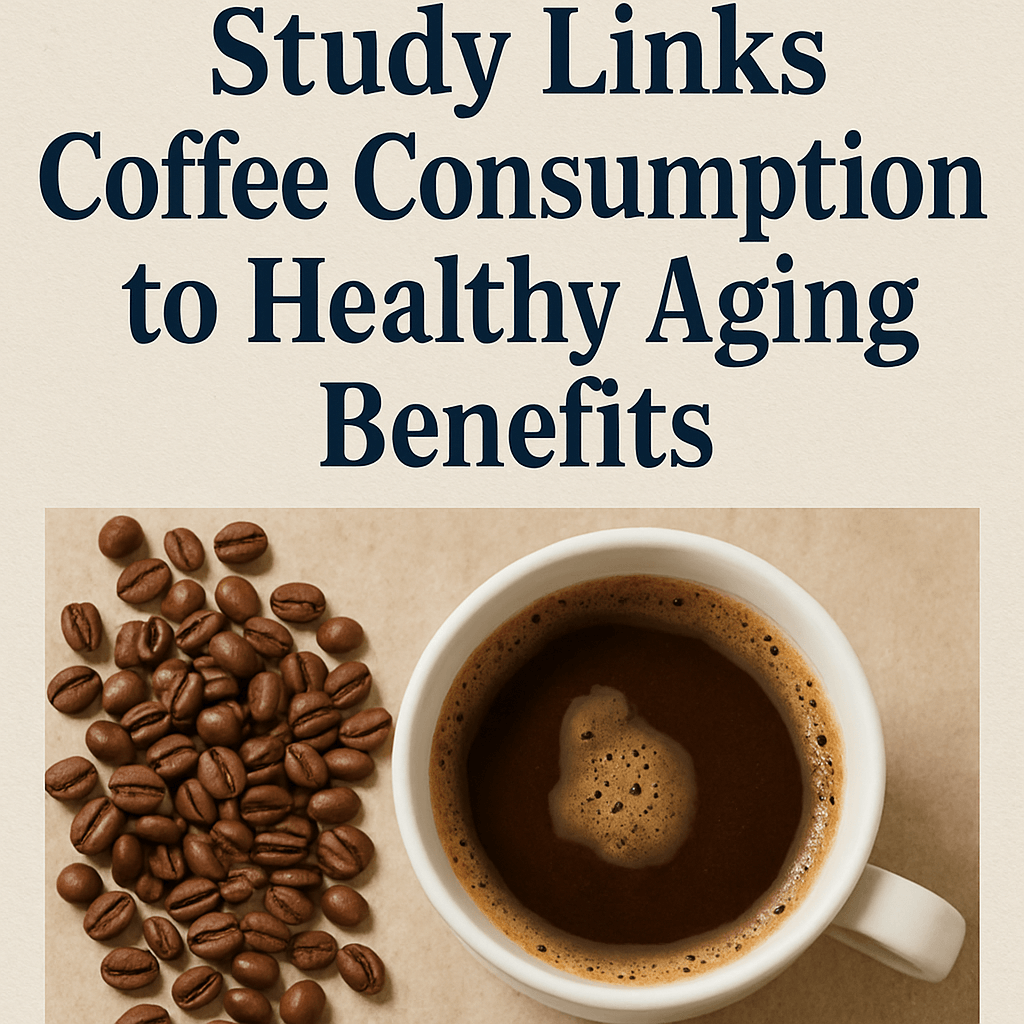Study Links Coffee Consumption to Healthy Aging Benefits

In a comprehensive long-term study spanning over three decades, findings reveal that individuals who consumed approximately 315 mg of caffeine daily—equivalent to one to three cups of coffee—exhibited a greater likelihood of reaching the age of 70 without major chronic conditions. These individuals also maintained physical function, good mental health, and avoided cognitive impairment or memory issues.
A Win for Coffee Drinkers
Recent research underscores the potential health benefits of coffee consumption, particularly among mid-life women who averaged one to three cups of caffeinated coffee each day. These findings emerged from the Nurses’ Health Study, which began in the 1980s with the dietary patterns of 47,000 women. The remarkable longitudinal study continuously tracked the participants over 30 years, conducting follow-ups every four years.
The term “healthy agers” used in the study refers to those who reached 70 years old without developing eleven significant chronic conditions, including heart disease, markers of physical fitness, sound mental health, and no signs of cognitive decline or memory issues. Dr. Sara Mahdavi, a post-doctoral fellow at Harvard T.H. Chan School of Public Health, presented these pivotal findings at the American Society for Nutrition’s annual meeting held in Orlando.
Strengths of the Study
Dr. Mahdavi highlighted several critical strengths of their study, including:
- Large Sample Size: With nearly 50,000 participants, the study’s findings draw on a robust dataset.
- Longitudinal Approach: The extensive follow-up period enhances the reliability of the data on aging and health outcomes.
- Comprehensive Data Collection: Nutritional and lifestyle habits were meticulously documented every four years, allowing for nuanced analysis.
Caffeinated Coffee vs. Other Beverages
The research indicates that caffeinated coffee had a more pronounced positive effect on healthy aging compared to other beverages like tea or decaffeinated coffee, which did not show a similar correlation. Interestingly, a higher intake of caffeinated sodas was associated with negative outcomes regarding healthy aging, highlighting the unique benefits of coffee products.
While the study illuminates a correlation between coffee consumption and healthy aging, it stops short of establishing a direct causal relationship. However, it contributes to a growing body of literature suggesting various potential advantages of coffee for both physical and cognitive health.
Potential Health Benefits of Coffee
Caffeine serves as a stimulant by blocking adenosine, a neurotransmitter that promotes sleep and relaxation, leading to enhanced alertness. But the benefits of coffee may extend beyond mere wakefulness:
- Type 2 Diabetes Risk Reduction: Studies have shown that coffee drinkers may experience a reduced risk of developing Type 2 diabetes.
- Cardiovascular Health: Moderate coffee consumption has been linked to lower risks of heart disease and stroke.
- Neurodegenerative Disease Protection: Research suggests coffee may reduce the risk of neurodegenerative conditions, including Alzheimer’s and Parkinson’s disease.
- Enhanced Physical Performance: Caffeine may improve exercise performance by increasing adrenaline levels.
- Mood Improvement: Regular coffee consumption can elevate mood and may decrease the risk of depression.
Cautions and Considerations
Despite its potential health advantages, experts advise caution regarding excessive coffee consumption, especially when accompanied by sugar or artificial sweeteners. Such additives may negate health benefits and potentially contribute to obesity and diabetes.
Additionally, individuals consuming high amounts of caffeine may experience sleep disturbances and elevated stress levels, leading to adverse health outcomes. The relationship between coffee and healthy aging remains complex, and non-coffee drinkers may not achieve similar benefits if they suddenly introduce coffee into their diets.
Conclusion
While this research provides encouraging insights for moderate coffee drinkers, it is vital to remember that healthy aging encompasses a multitude of factors, including diet, physical activity, and quality of sleep. Coffee may be one component of a broader lifestyle strategy for longevity.
More on Nutrition
- How Vitamin D Supplements May Help Improve Energy Levels
- Creatine Supplements for Boosting Muscles: New Study Findings
- Some Dietary Supplements May Be Damaging Your Liver: Research Update
About the Author
Alexa Mikhail is a senior health and wellness reporter for Fortune Well, focusing on longevity, aging, caregiving, workplace wellness, and mental health.